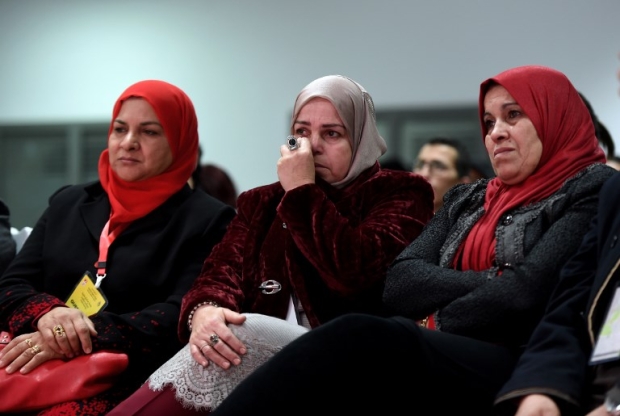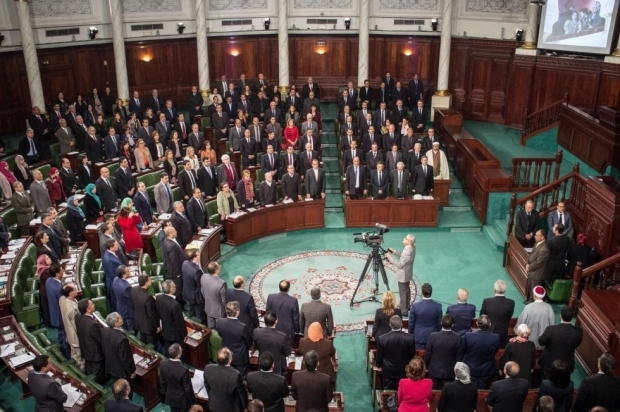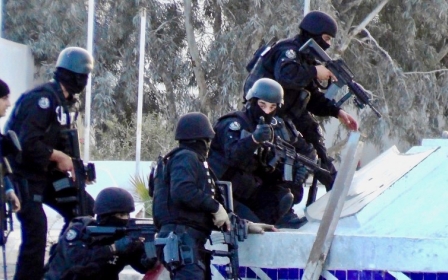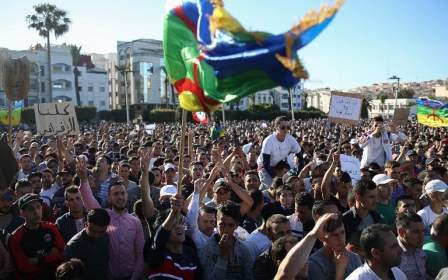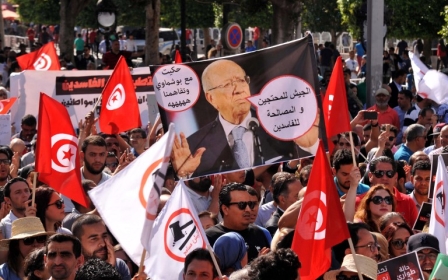The law that could be the final blow to Tunisia’s transition
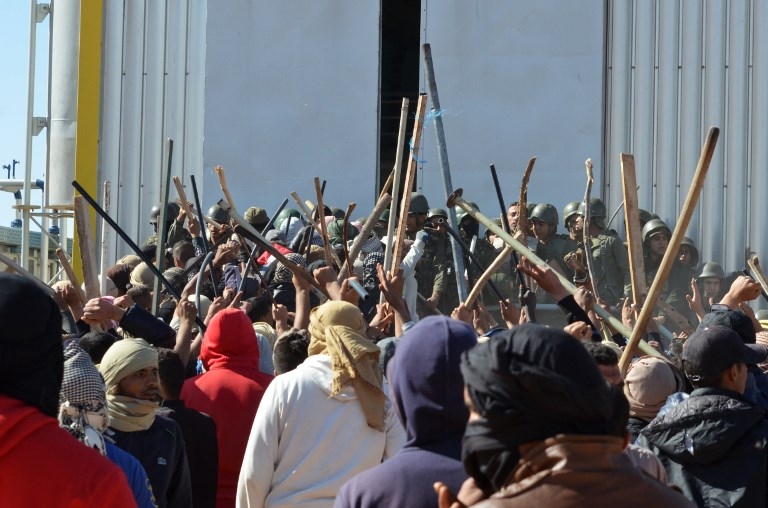
Six years after the fall of the Ben Ali regime in Tunisia, transitional justice is going through hard times.
Impunity for human rights violations persists. The most senior officials responsible for the repression have escaped justice. And the Truth and Dignity Commission - set up in 2014 to establish the truth about violations of civil, political and economic rights by successive governments since independence - is under attack from all sides.
Instead of establishing the truth, the law would inevitably mean that those who preyed on the country’s economy for decades and their methods would never be revealed
The reintroduction of a draft law on economic reconciliation in April could be the final blow.
President Beji Caid Essebsi first proposed the bill during his Independence Day speech on 20 March 2015. He said it would “improve the environment for investment” and increase the recovery of assets from corrupt business executives, allowing the assets to be used for development projects.
But the fact is that Tunisia needs to continue shedding light on the inner workings of the authoritarianism and economic plunder under Ben Ali if it wants to make a definitive break from the past and pursue its path toward democracy - and this law won't do that.
Undermining justice
In December 2013, Tunisia made a commitment to carry out a transitional justice process. Under this process, the country was to investigate human rights violations linked to the repressive system and refer cases for prosecution. And the investigations were to help government institutions to avoid the mistakes – and bar the officials – responsible for past abuses. The transitional justice process included corruption crimes under the former regime.
Tunisia has two mechanisms to deal with corruption crimes. First, the judicial system has the authority to prosecute and try any person who has benefited from or been an accomplice to embezzlement. Second, the Truth and Dignity Commission has a mandate to investigate corruption crimes, arbitrate on these cases, or refer cases of businesspeople or government agents suspected of corruption to the justice system.
The “reconciliation commission” as envisioned, would operate for only nine months and would have multiple flaws with respect to a sound transitional justice process. With members appointed by the government or interest groups, it would lack independence. It would only be able to deal with individual cases of corrupt businessmen who come forward voluntarily. Its mandate would not include investigating the inner workings of corruption under the former regime. And it would enable government agents involved in corruption cases to benefit from an amnesty and immunity from prosecution, undermining efforts to eradicate corruption.
In Tunisia, as elsewhere, corruption and human rights violations go hand in hand. The 2012 national commission responsible for investigating corruption and the embezzlement of public funds revealed that Zine el Abidine Ben Ali’s family and friends diverted public funds and land by exploiting state institutions, such as state banks, the justice system and the police, to maximise their own gains and punish those who tried to stand up to their business initiatives.
According to its own figures, the Truth and Dignity Commission has received 2,700 requests for arbitration in financial cases, 685 of them at the request of the government, 16 by those responsible for financial violations, and the rest by individual victims. The commission already has encountered obstruction from government institutions in its effort to investigate financial crimes, and under this bill it would completely lose that authority.
Total secrecy
The draft law would guarantee confidentiality for offenders entering the reconciliation process, and the commission’s decisions would not be divulged to the public or to the administration. Documents obtained in the course of the commission’s work would be transferred to the national archives, but the law is silent on procedures for accessing these documents.
The draft law would guarantee confidentiality for offenders entering the reconciliation process and the commission’s decisions would not be divulged to the public or to the administration
The commission would publish a final report containing its “findings”, but would not have to identify those responsible for violations. In contrast, the Truth and Dignity Commission’s final report is envisaged as a public document that would identify those responsible for the violations.
Under the draft law, no individual or body would be able to use information obtained “in the framework of this law for other purposes or in another situation”. In effect, this article could prevent institutions such as the Truth and Dignity Commission or the justice system from getting information gathered by the Reconciliation Commission and would obstruct investigations into other human rights violations linked to institutions or individuals involved in corruption cases.
Foxes on guard at the hen house
The Reconciliation Commission’s mandate appears to be narrowly designed to deal with individual cases of reconciliation. Its objective would not be to reveal the inner workings of a system that has enabled the most corrupt individuals to benefit from complicity within the state apparatus.
Yet one of the main objectives of transitional justice is to identify the system of repression to dismantle its spider’s web of corruption and financial set-ups. The systemic and institutional dimension of corruption should be at the heart of any initiative to uncover the truth about past crimes.
The law on economic reconciliation appears to turn upside down the very principles of transitional justice
And with the requirement for the commission to handle only cases referred voluntarily by people involved with corruption, it effectively leaves the work of activating the commission to corrupt businessmen or state agents.
The commission would not have the authority to take action on the basis of information it may receive or to conduct independent investigations into the actions of people who don’t come forward voluntarily.
This amounts to holding the government hostage to the good will of people who are notoriously corrupt or against whom there are serious accusations of financial misappropriation or predation.
Lacking autonomy, misplaced amnesty
The new law also calls into question the independence and autonomy of the transitional justice process. The revised law has improved the composition of the proposed “reconciliation commission”, which initially would have been overseen entirely by the executive. But the commission would still lack sufficient guarantees of independence and autonomy.
All members would be appointed rather than elected, either by representatives of the executive or the legislature, or by professional organisations such as the lawyers’ association or representatives of the judicial system. The Tunisian head of state would select the head of the commission.
In addition, the parliament would not vote on the commission's budget. Instead, its operating costs would be allocated from the budget of the national anti-corruption authority, which already faces budgetary problems, based on several statements by its president, Chawki Tabib.
Indeed, the draft law provides for public servants or state agents who have been prosecuted or tried for actions linked to financial or administrative corruption to benefit from an amnesty, if they have not personally made financial gains from corruption. The commission could decide to grant amnesty even in ongoing cases.
The law remains silent on any process to identify public servants who made personal or financial gains from corruption, compel them to declare their assets, and distinguish them from those who did not make any personal gains.
Justice turned upside down
Ultimately, the law on economic reconciliation appears to turn upside down the very principles of transitional justice. Instead of establishing the truth, it would inevitably mean that the identities of people who preyed on the country’s economy for decades and their methods would never be revealed.
Instead of helping clean up Tunisia’s institutions by identifying corrupt public servants and excluding them from public service, it would provide an amnesty without prior examination of their individual acts, entrenching the culture of impunity in the Tunisian administration.
Instead of holding individuals involved in corruption to account, it would let them off the hook, paving the way for the same system to keep repeating itself endlessly.
- Amna Guellali is the Human Rights Watch researcher for Tunisia.
The views expressed in this article belong to the author and do not necessarily reflect the editorial policy of Middle East Eye.
Photo: Tunisian protesters confront security forces outside the El Kamour oil and gas pumping station, in the southern state of Tataouine, on 22 May 2017, during a sit-in to demand a share of local resources and priority for jobs in the sector. A young protester was killed after a national guard vehicle "accidentally" ran him over in the desert installation, raising fears of mounting social unrest in a region rocked by weeks of protest (AFP)
New MEE newsletter: Jerusalem Dispatch
Sign up to get the latest insights and analysis on Israel-Palestine, alongside Turkey Unpacked and other MEE newsletters
Middle East Eye delivers independent and unrivalled coverage and analysis of the Middle East, North Africa and beyond. To learn more about republishing this content and the associated fees, please fill out this form. More about MEE can be found here.



